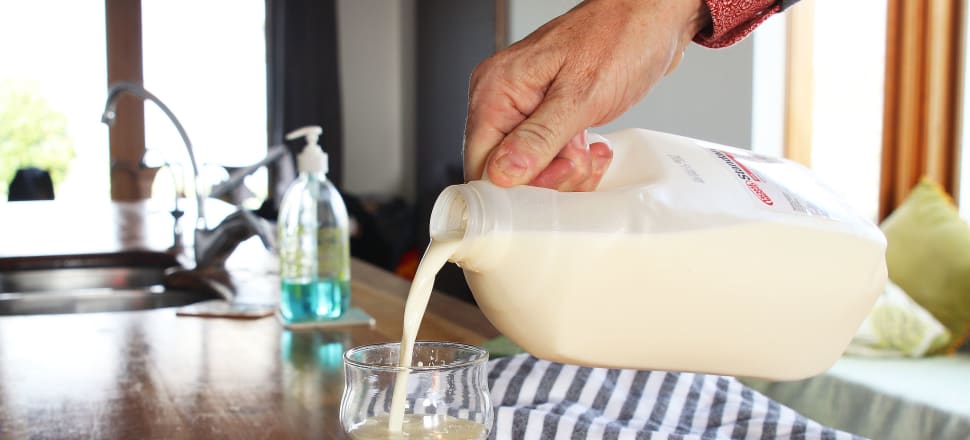
The dairy industry says its already a world leader on the farm and is improving its factory processing, but worries about the impact of further emissions cut on its communities
Fonterra and Synlait are attempting to shift energy-intensive boilers and other industrial processes to renewables, but farmers are worried that one-in-three will go backwards financially.
Fonterra will publish its submission to the Climate Change Commission this morning. The cooperative, owned by 10,000 farming families, produces 20 per cent of New Zealand’s greenhouse gas emissions – the vast majority of those from farming.
New Zealand’s dairy farmers have already reduced their carbon footprints well beyond global benchmarks, and have been consistent in saying they need more R&D investment from Government and industry to make further emissions cuts.
Fonterra’s Fraser Whineray, who has been a leading figure in the Aotearoa Circle and other high-powered initiatives to develop responses to the climate crisis, is to publicly present the submission.
As chief operating officer, he has responsibility for the manufacturing processes. Fonterra uses coal to power a couple of dozen boilers and air heaters; in addition, it has 70 or 80 gas boilers and air heaters. The co-op faces a very tough challenge to transition coal processes to renewable energies by 2037, and gas soon after, as the Commission recommends.
But it has already stopped installing new coal boilers. And it’s supplemented coal with wood biomass at one site, in Brightwater, which the company has said reduces it emissions by about 2000 tonnes a year.
The other big dairy firm, Synlait, powered up New Zealand’s first large-scale electrode boiler in March 2019, to provide process heat/steam in its advanced dairy liquids facility at Synlait Dunsandel.
But some analysts see the use of biomass for fuel as a more cost-effective way than electrification to decarbonise large large-scale industrial processes.
Z Energy and Air NZ have also argued for increased investment in wood biomass for the transport sector. According to Crown research institute Scion, the country could convert 4 million tonnes of forestry residue to more than 700 million tonnes of biofuel.
DairyNZ, in its submission to the Climate Change Commission, argues along parallel lines. It says the Government should develop methods for tracking emissions and removals by sources and sinks not yet included in the country’s domestic or international target accounting – specifically, organic soils and biomass, including small lots of trees and regenerating vegetation.
The industry group says it has modelled the proposal’s potential impacts on rural communities. If the recommendations are adopted, by 2035 milk production could fall 7-13 percent and 34 percent of farms could go backwards financially, with flow-on consequences for GDP.
“The Commission significantly underestimates the economic impacts," said chief executive Dr Tim Mackle. "The Commission has assumed stock numbers will reduce, along with land use and methane – but milk production will stay the same.
DairyNZ argues for "a robust research and development plan" to support climate change solutions while maintaining New Zealand’s position as a world-leading sustainable dairy producer. This would include developing new technologies to reduce biogenic methane emissions.
Mackle welcomed the split approach to gas likes carbon dioxide and biogenic methane, and the recommended investment in better rural digital connectivity. However, he said farmers wanted confidence the goalposts wouldn’t continue to shift, if they made significant investment and changes to how they farmed.
“Kiwi dairy farmers are world-leaders in sustainable and low emissions dairy products, but we need to continue making improvements behind the farm gate to keep pace with changing community and consumer expectations,” he said.
Federated Farmers issues a reminder, in its submission, that New Zealand dairy farming has one of the world’s lowest greenhouse gas emissions per tonne of milk produced.
"Cutting the New Zealand agriculture sector to meet the Nationally Determined Contribution is short sighted, will cost New Zealand jobs, risks disrupting the global food supply and will ultimately harm the atmosphere by forgoing market share to less efficient international competitors."







